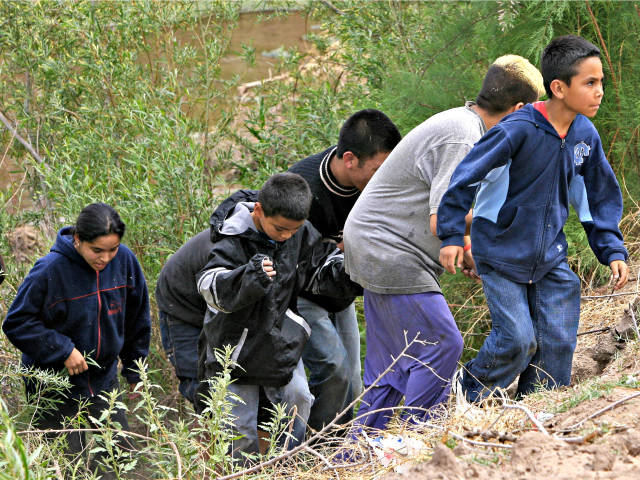
Let’s try to have a realistic conversation about the crisis at the border and a not-to-be-mentioned aspect of it.
Let’s start with the basic concept that it’s not nice to abandon your children.
Every time an “unaccompanied minor” crosses the border without his or her parents, we are dealing with parents abandoning their children. Sometimes the abandonment was in the past, when the parents left their kids behind (in, say, Central America) in a successful effort by the parents to come to the U.S. illegally; now they use coyotes to smuggle the kids into the U.S. to join them.
Sometimes the child (or teenager) is sent ahead, in the hopes that the parents can join them in the U.S. later. Sometimes the parents are in nearby Mexico, and the children have been sent over the border, which is often a river, and often a dangerous one.
But the family has split itself in all of these scenarios — the split was not a governmental action.
Why do the media and the Left not see it that way?
The answer is that the brutal truth of the situation is not something one wants to write about; it is much easier to talk of kids in cages, or huddled under plastic blankets; and overcrowded detention centers, or the clumsy and expensive process — forced on our government by the kids’ parents’ irresponsibility — to link them up with distant relatives or a foster care situation in the States. It is easier to write about little Jose and his problems than to delve into the huge costs that the U.S. is faced with in these migration scenarios — the immediate costs of finding, feeding, and housing them, and the longer-term costs of covering their health, education, and welfare needs for years to come.
And one gets no pleasure from noting that the parents were the ones separating their families in most of these cases.
If a family decides to seek to enter the U.S. as a family illegally, that’s a terrible decision, and may lead to awful experiences and deprivation, but it does not separate families. If the family does not qualify for our immigration program, as the overwhelming majority do not, the family should be repatriated, as a unit.
I recognize that life in the Northern Triangle can be very difficult, with both poverty and crime being widespread; our nation should take major steps to help change those conditions. I also know that our immigration policy in the last few months has encouraged migration, whether it meant to or not, but families should stay together and kids should not be used as bargaining chips.
It takes a very specialized sort of irresponsibility to break up one’s own family in an effort to break or outwit our immigration laws — and that’s what we are seeing at the border, and that’s what the media simply will not describe.
